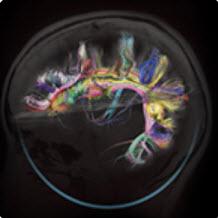
The National Institutes of Health is hosting the Multimodal TMS Speaker Series to bring together the leaders in the field conducting research using non-invasive brain stimulation and functional imaging including EEG and fMRI. The event will be broadcast via web-ex and archived for later viewing.
- Dr. Angel Peterchev will be speaking on June 7th, 2:30 pm.
- View Eventbrite for more event information
Title:
Building TMS tools for selective neural engagement from the ground up
Abstract:
Transcranial magnetic stimulation (TMS) is a non-invasive technique to alter neural activity in the brain. It is a widely used neuroscience tool, an FDA approved technique for noninvasively mapping cortical function and treating depression, as well as an experimental intervention in other psychiatric and neurological disorders. While there are fundamental physical limits to the ability of TMS to target neural populations in the brain, these limits are not reached by conventional TMS technology. Addressing this opportunity, this presentation will describe novel TMS device development, MRI-informed modeling, and concurrent TMS and intracerebral recordings intended to build, from the ground up, better tools for selective neural engagement.
Speaker Bio:
Angel V. Peterchev, PhD received degrees in physics and electrical engineering from Harvard University and University of California, Berkeley, and postdoctoral training in transcranial brain stimulation at Columbia University. He is presently Associate Professor at Duke University in the departments of Psychiatry & Behavioral Sciences, Biomedical Engineering, Electrical & Computer Engineering, and Neurosurgery. He directs the Brain Stimulation Engineering Lab which aims to improve brain stimulation technology and paradigms based on insights from electrical engineering, biophysics, neuroscience, and psychiatry. Dr. Peterchev has contributed to novel TMS devices with controllable pulse parameters, models and analysis of the electromagnetic field induced by transcranial magnetic and electric stimulation, andin vivo studies exploring the relationship between stimulation parameters and physiological response including combining TMS with fMRI, EEG, and intracerebral recordings.
